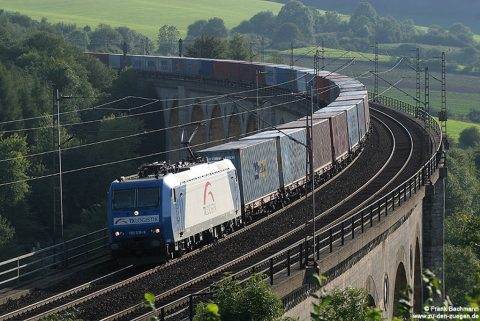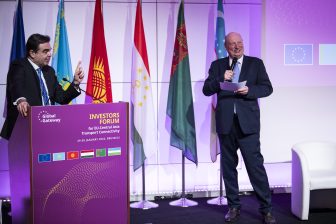
Rail freight CEOs: Performance indicators provide transparency
Rail freight operators will work more closely with the European Shippers Council (ESC) to increase the transparency of freight performance through key performance indicators (KPIs). Track-and-trace solutions will also be explored as a result of the latest annual high-level meeting of rail freight CEOs held in Brussels.
KPIs would allow all parties to improve their knowledge of factors that have a negative impact on rail freight service punctuality, the meeting heard. Jointly staged by the International Union of Railways (UIC) and the Community of European Railway and Infrastructure Companies (CER), it also gave a platform to shippers’ representatives for discussing with rail operators how they can receive an estimated time of arrival for their shipments.
Solutions
Jean-Christophe Hermand, Chairman of the ESC, said: “Many shippers really believe in rail transport and even want more. But they have needs to which railway companies, for a number of reasons, often do not have the right solutions.”
Each ESC delegate added a short statement on their individual problems with railways and made known to the CEOs their expectations. It was the first meeting between an ESC delegation of shippers and rail freight CEOs as part of the yearly event, and will be followed by more closer cooperations at operational level to improve the competitiveness and quality of freight services, and ensure shippers’ needs are better integrated in railway undertakings’ strategies.
Digitalisation
Ferdinand Schmidt, Board Member of Rail Cargo Austria, presided over the main meeting, with a strong focus on how technology is increasingly making the ‘digital freight train’ a feature of the rail sector, and ensuring that digitalisation is more than just a ‘buzzword’ but has the potential to change the way business is done.
Highlighting their work in this field, Sylvie Charles, CEO of the French SNCF Logistics, showed a train composed of wagons with brake sensors interconnected by a protected wireless network which enables the driver to carry out the brake test from his cabin, without the need to walk along the train and visually check the status of each brake.
‘e-Rail Freight’
The UIC said that other digitalisation challenges stemmed from the need of digitisation in the proper sense of the word, which is replacing the exchange of data on paper documents by electronic transmission. Here, the change is not only driven by business needs but also by regulation such as customs rules and transport law.
UIC is addressing the challenges posed in this area with its “e-Rail Freight” project, which was set up in 2008 as part of a commitment by 20 railway operators to implement paperless transports. A project team was established with representatives from UIC, the Community of European Railway and Infrastructure Companies (CER) and the Interrnational Rail Transport Committee (CIT).
The next rail freight CEOs’ meeting is scheduled for May 16-17 2018 in Vienna.





